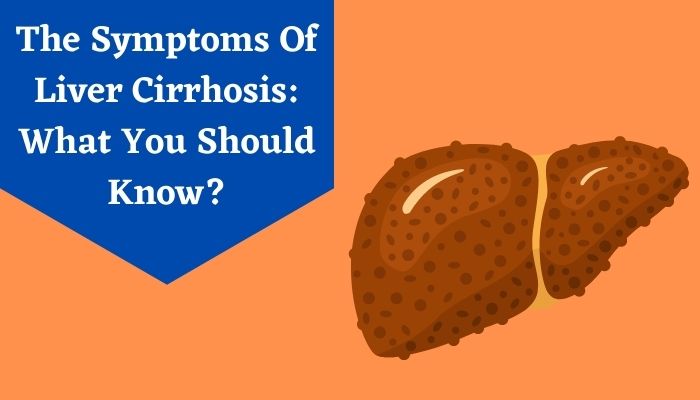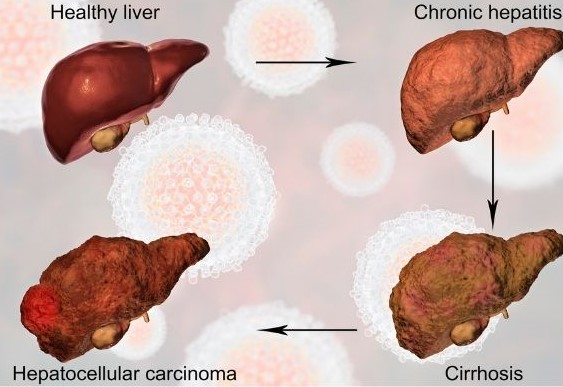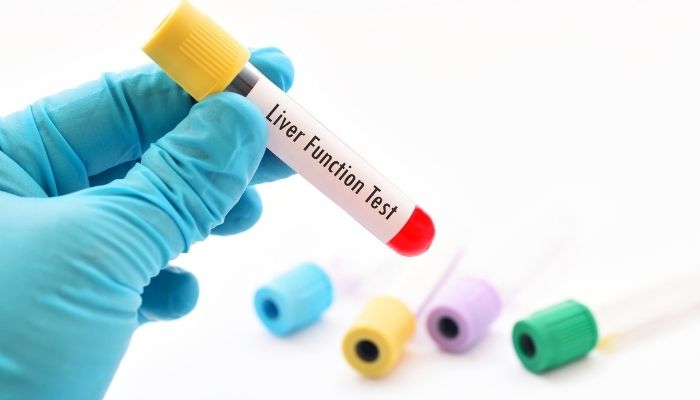Liver cirrhosis is the late stage of liver disease that is caused due to various liver diseases and other conditions, like hepatitis and chronic alcoholism. Cirrhosis is a condition where the scar tissues gradually replace your healthy liver cells. Though you can’t fix this damage, if diagnosed earlier, liver cirrhosis treatments will keep problems in control. For this, you need to know the exact liver cirrhosis symptoms to detect this disease early.
The liver is the prime and useful organ of your body that can regenerate damaged cells. Cirrhosis occurs when the factors that are responsible for liver damage (such as alcohol and chronic viral infections) are present for a longer time. Under this scenario, the liver becomes diseased and scarred. A scarred liver can’t function appropriately and this may lead to cirrhosis.
Due to cirrhosis, your liver gets shrunk and hardened. Thus, nutrient-rich blood can’t flow into the liver from the portal vein. Pressure is generated in the portal vein when blood can’t pass into the liver. This may lead to a serious condition called portal hypertension, where the vein develops high blood pressure.
Liver Cirrhosis Symptoms
Depending on the stage of your liver, you may develop cirrhosis symptoms. In the earlier stages, you may not get any symptoms. Earlier symptoms have many similarities to other liver diseases and illnesses.Early Liver Cirrhosis symptoms and signs could be:
- Loss of appetite
- Feeling weak or fatigued
- Nausea
- Fever
- Abrupt weight loss
As liver function gets shoddier, you may experience some other symptoms including
- Easy bruising and bleeding
- Yellow skin or eyes (jaundice)
- Itchy skin
- Swelling in your legs, feet, and ankles
- Fluid accumulation in your belly/abdomen (ascites)
- Brownish or orange colored urine
- Light-colored stools
- Behavioral changes like difficulty thinking, memory loss, and personality changes
- Blood in your stool
- Redness in the palms of your hands
- Spider-like blood vessels on your skin
- In men: Loss of sex drive, enlarged breasts, shrunken testicles
- In women: Premature menopause
Causes of Cirrhosis
You may develop cirrhosis due to other reasons. If you can’t treat the root cause of cirrhosis, your situation will get worse. Some common causes of cirrhosis are:- Too much consumption of alcohol
- Non-alcoholic fatty liver disease (NAFLD) due to obesity
- Hepatitis B or Hepatitis C
- Cystic fibrosis
- Diseases that make it your body difficult to process sugars
- Excessive iron buildup in your body
- Wilson's disease (too much copper is accumulated in the liver)
- Autoimmune diseases that attack your healthy liver cells
- Blockage of the bile duct
- Some genetic digestive disorders
- Some infections, including syphilis and brucellosis
- Bad reactions to certain medicines
Liver Cirrhosis Stages
If you are suffering from cirrhosis, your doctor will tell you in which stage you belong. Let’s take a look at various stages of cirrhosis.- Compensated Cirrhosis
- Decompensated Cirrhosis
Your doctor will tell whether you have decompensated cirrhosis or not if you experience any of the below-mentioned signs and symptoms.
- Jaundice: This happens when your liver can't get rid of bilirubin (a blood waste product) that makes your skin and eyes yellow.
- Ascites: Under this condition, fluid starts accumulating in your belly.
- Bleeding Varices: Varices are engorged blood vessels. If your bleeding varices are black and tarry, then you need immediate care and attention.
- Hepatic Encephalopathy (HE): Toxins may accumulate in your brain and make you confused and very tired. You may feel difficulties in accomplishing your daily activities like driving or writing.
Liver Cirrhosis
- Stage 1: No varices and no ascites
- Stage 2: Varices without ascites and without bleeding
- Stage 3: Ascites along with varices
- Stage 4: Bleeding along with ascites
Liver Cirrhosis Treatment
Depending on the severity of your liver damage, the doctor will design the treatment method for you. The goal is to safeguard the remaining wholesome tissue.You need to do some lifestyle changes to control the symptoms of cirrhosis.
- Stop drinking alcohol completely. Your doctor may give you a treatment program for addiction.
- Try to lose weight if you are obese, especially if your cirrhosis is caused by fat buildup in your liver
- If you have hepatitis B or C, take medicines
- Consume adequate protein
- Get shots for flu, pneumonia, and hepatitis A and B
- Practice healthy hygiene and wash your hands frequently
- Before taking over-the-counter medicines like acetaminophen, aspirin, or ibuprofen, consult your doctor especially if you have ascites
- Drink adequate fluids, even if you have ascites. Always stay hydrated
- Consume a low-salt diet if you have ascites
- Follow a high protein diet
- Take diuretic medications if your doctor prescribes to manage ascites
- Take medications for constipation if your doctor has prescribed
Also Read: Exercise For Liver: Treat Your Liver By Exercising
Sometimes, your doctor will treat the complications that are related to cirrhosis. They may suggest things like:
- Low-Sodium Diet: This type of diet will control swelling and inflammation. If a severe volume of fluid is accumulated in your body, you may need to get it drained.
- Blood Pressure Medications: This type of medication minimizes bleeding inside your body that is caused by swollen and burst blood vessels.
- Antibiotics and Vaccinations: They can treat and prevent other infections.
Read More: 11 Evidence Based Foods to Eat That Help Keep Your Liver Healthy
If your cirrhosis is in the end-stage, you may need a liver transplant. A liver transplant is a major surgery where your diseased liver gets replaced by a healthy liver from a donor. But you need to wait for a long time for the new liver from a donor who has passed away. Some people may get part of a liver that is donated by a living person.
The Bottom Line
Though liver cirrhosis causes permanent damage to your liver, don’t lose hope. By changing your lifestyle, you can control the symptoms of liver cirrhosis to some extent. Take all medications properly that are prescribed by your doctor to manage the situation.





